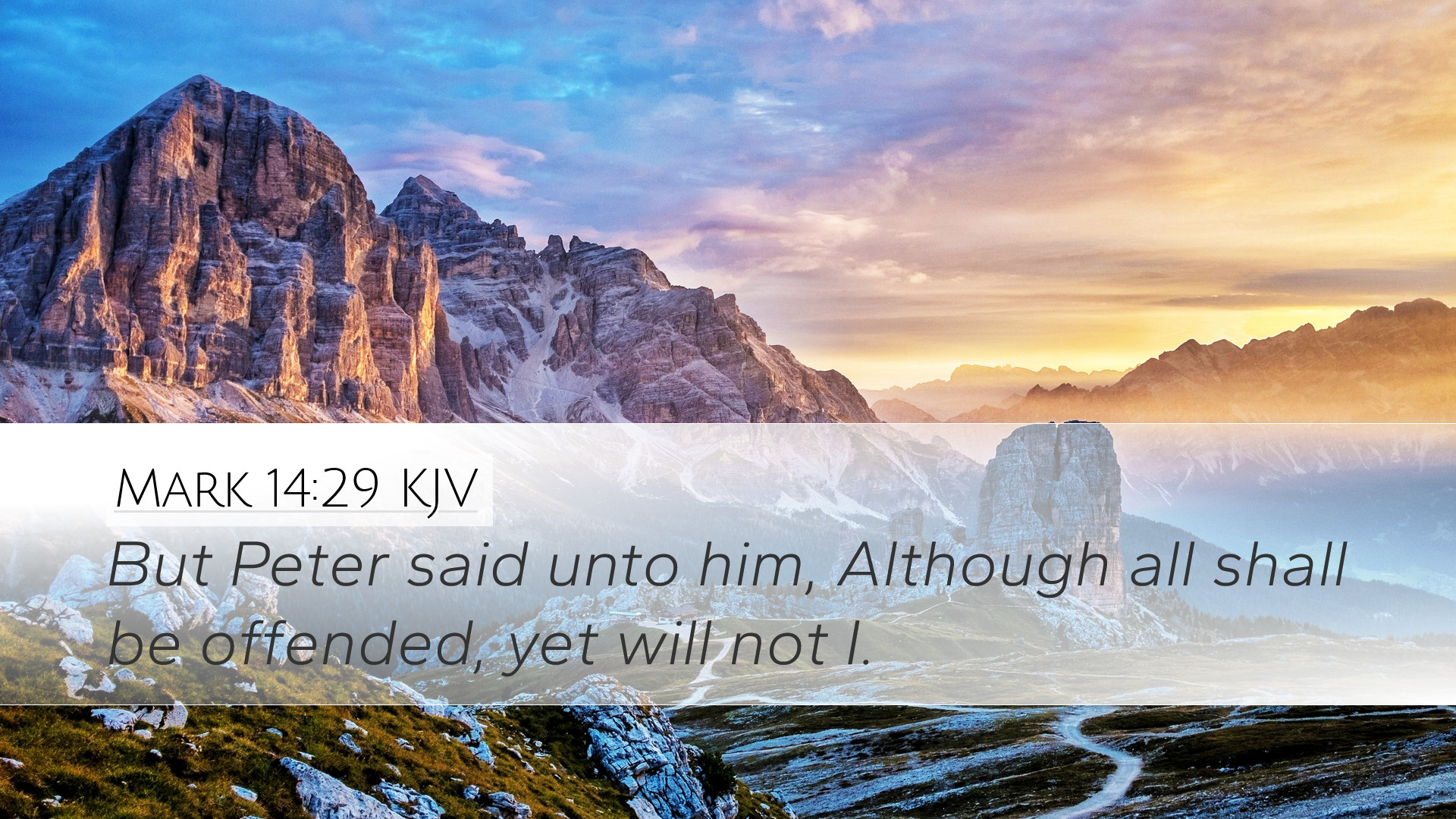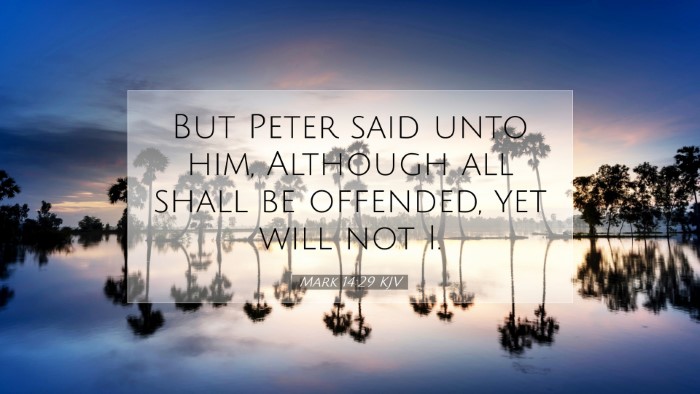Bible Commentary on Mark 14:29
Mark 14:29 states: "But Peter said unto him, Although all shall be offended, yet will not I." This verse captures a pivotal moment in the narrative of the Gospel. It illustrates the boldness of Peter's declaration and sets the stage for the impending events of the passion narrative.
Contextual Background
In understanding this verse, it is essential to consider the context within which Peter speaks. This moment occurs during the Last Supper, shortly before Jesus' betrayal and crucifixion. The disciples were troubled by Jesus’ foretelling of His imminent suffering, and the idea of desertion among them provoked a strong reaction, particularly from Peter.
Insights from Commentaries
-
Matthew Henry's Commentary:
Henry emphasizes Peter's confidence and zeal coupled with a lack of awareness of his own weaknesses. He reflects on how Peter's assertion, though noble, was evidence of human pride. Henry points out that all the disciples were subject to fear and abandonment in the face of adversity, but Peter, in a moment of bravado, believed himself immune. This speaks to the broader human condition of overestimating one's own steadfastness in the face of trials.
-
Albert Barnes' Notes:
Barnes draws attention to the contrasting attitudes of Peter and the other disciples. While they all felt the weight of despair, Peter's declaration stands out as an attempt to distinguish himself as the most devoted. Barnes critiques Peter's lack of humility and juxtaposes it with the ultimate failure that follows. He argues that the statement reveals a common flaw among believers: the reliance on one's own strength instead of God's grace. This foreshadows Peter's imminent denial and serves as a lesson on the dangers of self-assurance.
-
Adam Clarke's Commentary:
Clarke provides a detailed exploration of the text's implications for the church. He notes how Peter's boldness reflects both commendable loyalty and tragic ignorance. Clarke indicates that though Peter intended to stand firm, his spirit was willing while his flesh was weak. Furthermore, he recognizes that this moment serves as a relatable experience for many who desire to follow Christ faithfully but encounter their vulnerabilities. This commentary aligns with the Christian message that true strength lies in acknowledgment of one’s weakness and reliance on divine strength.
Theological Implications
This verse and its commentaries reflect crucial theological themes, including the concept of human fallibility, the nature of true commitment to Christ, and the importance of humility in the Christian walk. Each commentator emphasizes that despite man's failure, God's grace remains sufficient.
Human Overconfidence
Peter’s statement exemplifies the propensity for overconfidence in one’s spiritual condition, a theme echoed throughout Scripture. It serves as a warning that one must not assert their commitment to Christ without recognition of personal weakness. This is particularly significant for pastors and leaders who may feel pressure to appear unwavering, yet must acknowledge their need for grace.
Community and Accountability
A profound takeaway from this passage is the necessity for community and accountability among believers. Peter was not alone in his declaration; however, his isolation in thought led to his downfall. Pastors can utilize this in their teachings about the importance of communal faith and the support of fellow believers.
Grace and Restoration
Ultimately, Mark 14:29 opens up discussions about grace and the restoration process following failure. After Peter’s denial, we witness Christ’s loving restoration in John 21, highlighting that each believer, despite their shortcomings, is invited back into fellowship with Christ. This theme of grace is vital for church leaders to convey to their congregations, reflecting God’s unyielding love and forgiveness.
Conclusion
Mark 14:29 provides not only a snapshot of Peter's character but also a rich tapestry of themes relevant to everyday Christian life. The insights drawn from public domain commentaries enhance understanding, offering timeless truths concerning human nature, divine grace, and the importance of humility. For pastors, theologians, and students alike, this verse remains a powerful reminder of the complexities of faith, the necessity of dependence on Christ, and the transformative power of His grace.


